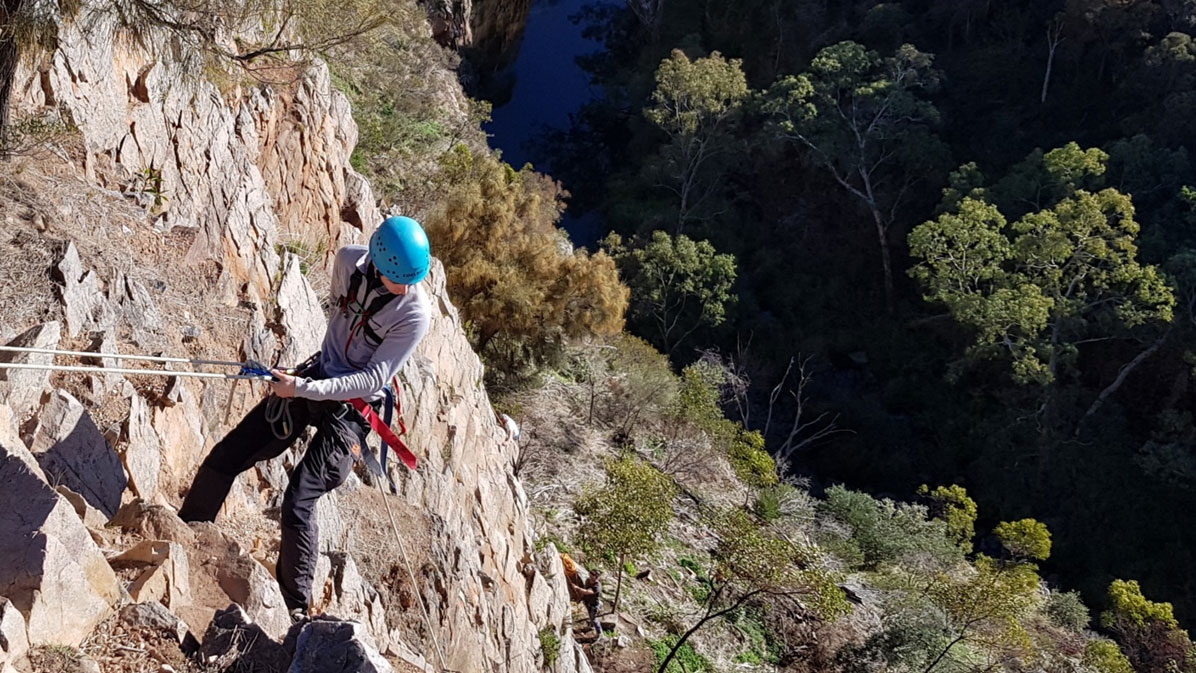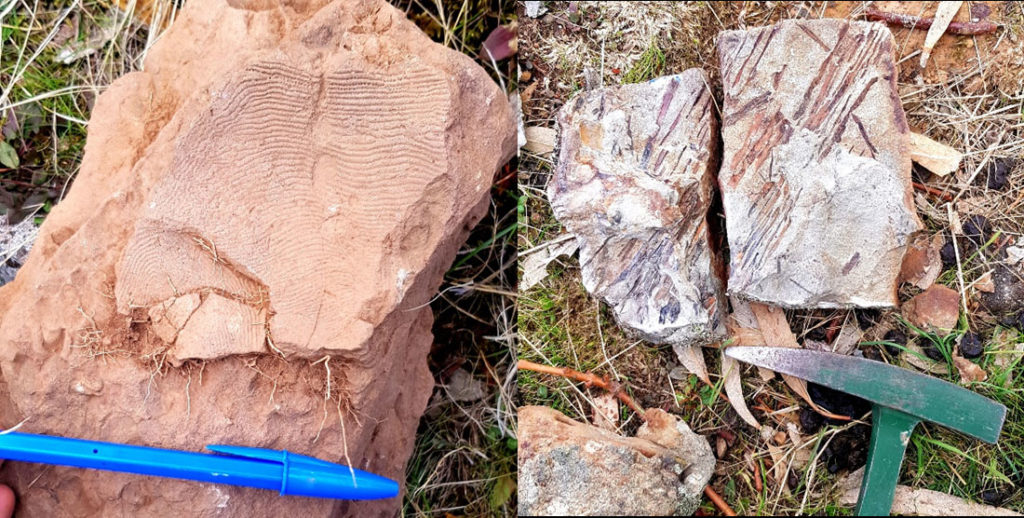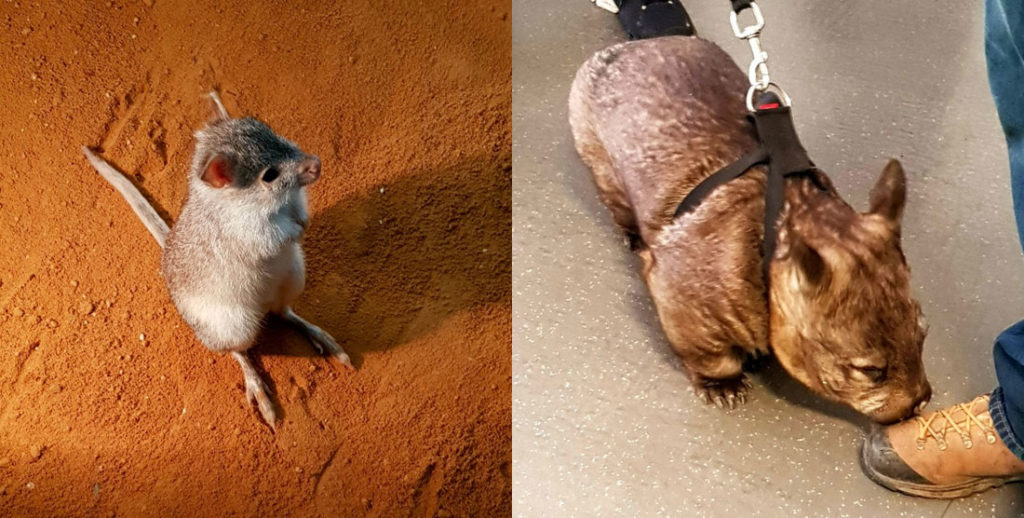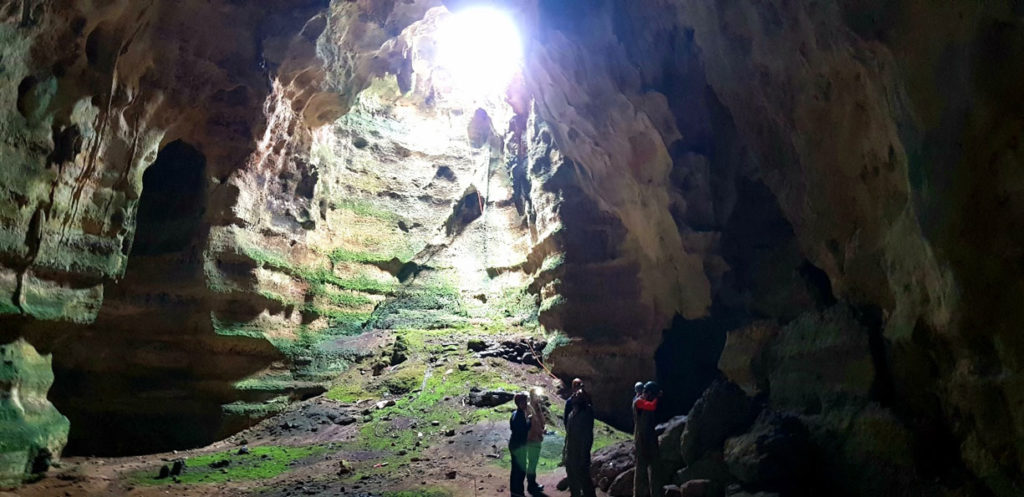
Give a general description of your studies.
For as long as I can remember I have had a passion for natural history. I started my studies at Flinders in 2017 with a Bachelor of Science in Marine Biology and Aquaculture fuelled with a passion for marine life. I went on to complete this degree in 2019 but felt something was missing. I bit the bullet and decided to pursue my childhood interest in ancient life and evolution, enrolling in a Bachelor of Science in Palaeontology (Honours) in 2020.
What excites you about Palaeontology? Why did you decide to go down this path?
There is something about getting glimpses into these ancient and often very different worlds. Evolution is an incredibly intricate system that astounds me with the wonders it creates. When I first started my journey, I was told palaeontology is a jack of all trades field and I have come to find it is true. You end up studying a bit of everything and apply a variety of skills to each problem you encounter. I love the hodgepodge of geology, biology, ecology, physics, chemistry, and even engineering that gets wrapped up in this field to better understand life we will never observe in the flesh. I believe palaeontology not only equips you to be a potent naturalist but a truly comprehensive and critical scientist. I am now addicted to chasing those “oh wow” moments.
Why was Flinders the right choice? What makes Flinders stand out from other universities?
When I first started university, Flinders appealed to me due to its convenient location and the greater opportunities for hands-on learning. This was true for marine biology and was dialled to the max for palaeontology at Flinders. No other Australian university has a palaeontology course at this level. It is a passionately designed course, supported by some of Australia’s best in the field and allows you to get stuck in the thick of it, experiencing the research and fieldwork firsthand. I feel privileged to have the best Australia has to offer just a 6-minute drive from home.

Describe your learning experience at Flinders; What key areas of your studies most excite you, or are stand outs due to the topic, the lecturer or other elements?
My learning experience with Flinders palaeontology has been incredibly dynamic. You will get to visit world-renowned fossil localities, some of which are in our backyard. I have worked with the rich fossil collection in the labs, learned how to become a mediocre illustrator, and worked with Australian animals to study their movement and footprints. I even made friends with Snuffles the wombat. Constantly doing something new and experiencing new things creates a dynamic lifestyle that I cannot get enough of. All the educational staff are incredibly friendly, approachable, and knowledgeable. I would like to especially acknowledge Aaron Camens, who is topic coordinator for most of the core topics, as I can see the passion, effort, and the hundreds of hours behind the scenes he has put in to create a top-class course. A firm but friendly individual, he has always supported me. I can think of no better leader to educate our new generations of palaeontologists.

Describe the Flinders’ environment. What physical aspects of Flinders stand out?
In addition to the course content, the Flinders environment is incredibly pleasant. With an abundance of natural spaces each time I am on campus I feel close to nature. The facilities are fantastic with study spaces both social and quiet, plenty of food options to keep the fussiest of eaters happy, and a resource-rich library which is sometimes underutilised in my opinion. The tavern is also a fantastic place to socialise with friends or your educators over a few beers and a burger. The biological sciences have modern state of the art teaching labs, and the palaeontology department has a great lab that sparks jealousy in the biology building. There is a multitude of clubs and societies you can get involved with. I have been on field trips, quiz nights, and fossil sorting days with the Flinders University Palaeontology Society (FUPS) as well as exploring caves and learning to abseil with the Flinders University Speleological Society Inc (FUSSI). Clubs and societies are a great way to make friends with like-minded people and get involved with unique opportunities for next to nothing in a supportive environment.
What practical placements or experiences have helped along the way?
Throughout your undergraduate you have opportunities to attend international trips, I foolishly allowed them to pass. Feedback from friends was that these trips, whether it be to the Maldives or Africa, are some of the best parts of your university life. Whatever your passion is there are real-world experiences to be had. I have done work experience in fisheries management at PIRSA, research volunteering at SARDI aquatic sciences, and volunteering in the palaeontology labs to contribute to real museum cataloguing. “You’re going on another field trip!?” is a response I received a lot during my palaeontology degree, from exploring the depths of the Naracoorte Caves to climbing the heights of the South Blue Ranges in Victoria, if you like exploring you will do plenty.

Your future career plans. Where do you see your studies taking you?
As I come to the end of my undergraduate, I have decided to combine my marine biology passions with my palaeontology to study the earliest vertebrates with the ancient fish. Fish have been a big passion of mine for most of my life and to have the opportunity to apply both of my passions in one field has been truly valuable. My honours is scheduled for 2022, studying the morphology and evolution of these early fish. Afterwards, I would like to pursue a PhD, focusing on the Devonian deposits at Gogo in the Kimberley which is a goldmine for a fish evolutionary biologist.
Tell us why you would recommend studying Palaeontology at Flinders?
If you are a passionate, driven individual with a thirst for practical and experience-based learning Flinders will suit you perfectly. With flexible courses lead by supportive educators all inside comfortable and modern facilities, Flinders will have everything you need to make a successful career in biological sciences. All that is left for you to do is to take the wheel and make it your own.
Any other thoughts?
Make the most of your time at university. Get involved, follow your passions, focus on what drives you most, utilise the resources you are provided and make connections with the staff and students around you. Whilst the content of the topics is world-class, capitalising on the resources you have and indulging in the extra opportunities Flinders provides will allow you to make the most of your degree and strengthen your success in the future. Give your 110% and it will make a massive difference. Also, make sure to utilise your course advisors and support networks. If you are passionate about pursuing something have a chat with the course advisors of your college. I incorporated work experience into my core topics so there is flexibility where you need it.

